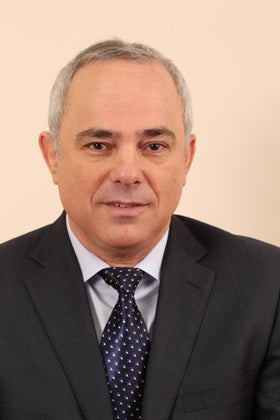Israeli Minister of Intelligence Yuval Steinitz called Iran’s progress towards becoming a nuclear regime “the most critical issue, not just for Israel and the Middle East, but for the world” during a conversation at Harvard Law School on Dec. 5. The event was organized by the Harvard Jewish Law Students Association.
“We want only one thing. We want confidence that Iran cannot produce nuclear weapons,” said Steinitz.
Steinitz began the discussion by comparing Iran to North Korea, a country that has long declared its intention to produce nuclear weapons. If Iran develops nuclear weapons, he said, it could potentially pose an even greater threat to the world.
While North Korea has a regional focus in its nuclear program, it’s “different with Iran,” he said.
“Iranian leaders, have been speaking now for several decades about their intention to change the overall balance of power in the world…between Islam on the one hand, and the modern western world on the other hand,” he said.
Additionally, Steinitz said, Iran has the capabilities to produce weapons at a far faster rate than North Korea.
“If Iran will get nuclear, unlike North Korea, what we will have is not five bombs or ten nuclear weapons, but in a decade or so they will have more than 100 atomic bombs,” he said.
Steinitz, who was appointed to the position of Minister of Intelligence in March 2013, spent much of the talk discussing the recent accord between Iran and six Western powers that temporarily freezes the country’s nuclear activities as they work towards a comprehensive, long-term agreement regarding its nuclear program.
Israeli leaders have been vocally critical of the agreement, deemed a “historic mistake” by Israeli Prime Minister Benjamin Netanyahu.
Steinitz echoed the sentiments of his fellow Israeli leaders during his talk at the Law School. He pointed out what he sees as central problems with the recent accord–that under it, Iran remains a “threshold nuclear country” capable of producing nuclear weapons in the near future, and that it still allows the country to enrich uranium up to the level of 3.5 percent.
“This interim agreement is just an interim agreement,” he said, adding that he thinks it makes “very clear” what Iran will get in the final agreement—”complete cancellation of all sanctions.”
“But it’s unclear what … the world is going to get,” he said.
He said he thinks there is “one logical solution” to the issue: If, as Iran says, its priority is civilian nuclear energy, it should stopping enriching uranium itself and instead buy nuclear reserves from other countries.
“They can say, we have nuclear electricity, and we can have the confidence that they cannot make the bomb,” he said.
